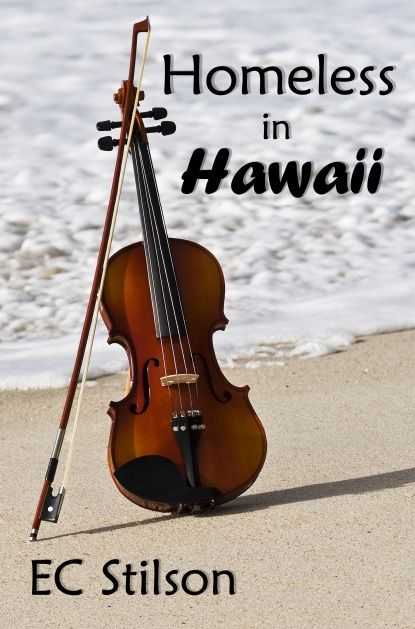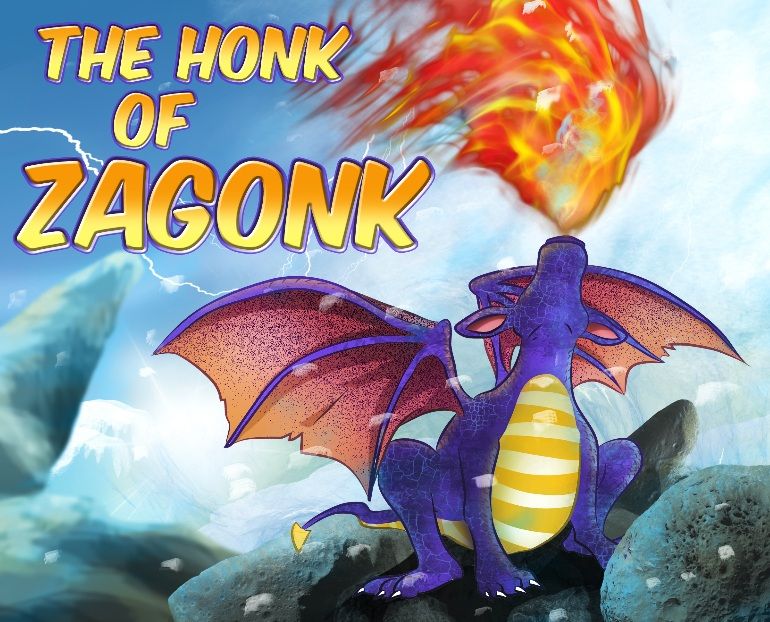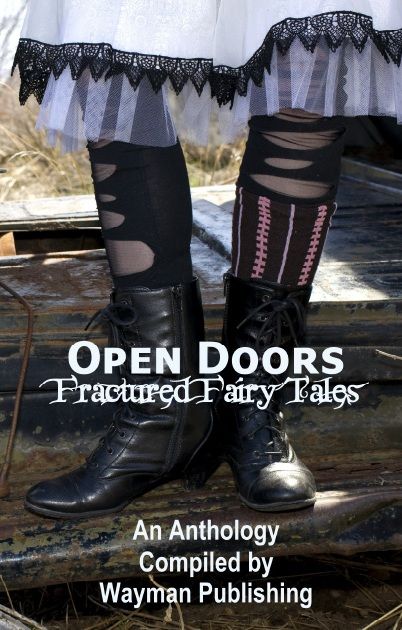This posting today has two
parts. Please visit both of them!
Part I—Spelling
As an editor who’s spoken to
high school students, I’ve heard several say, “I couldn’t edit because I
can’t recognize a misspelled word” or “I can’t write because I’m a lousy
speller.”
I’m the editor/writer who disproves those theories. Because of an auditory
learning disability, I am an extremely poor speller, and yet I both edit and
write.
About thirty years ago, I met a professional who tested children experiencing
problems with reading. After determining that I had an auditory learning
disability, she expressed amazement at my memory. Here’s what she found
mindboggling:
From kindergarten through third grade, I missed three months out of the nine of each school year. So I never learned to sound out words. I knew the names of the
alphabet letters, but I didn't know that each letter had its own sound. Nor
did I ever learn that words had syllables and each syllable had a vowel
within it.
In grade school we had spelling books. Each week we learned how to spell twenty new
words. Each night—Monday through Thursday—I would memorize five of those
words. Mom would point to one, let’s say winter, and say aloud the word
those letters represented.
I didn't know that the letter beginning the word represented the sound of w.
For me, the word winter could be spelled egtyrhgwt. It wasn’t a
series of melded sounds; it was an arrangement of randomly chosen letters
someone in the far distant past had put together.
I didn't recognize the sound of individual letters or syllables. Mom had said, “winter” and
pointed to the letters. So for me the configuration of the letters w-i-n-t-e-r
was said as “winter.” It never occurred to me that in that word are two
syllables win- and –ter. Or that win is the sound of a w
and an i and an n melded together.
I memorized the configuration of the letters w-i-n-t-e-r and whenever I
saw this entity in a sentence or on a Wheaties box or in a headline I knew that
I was seeing the letters that represented the word winter.
Throughout grade school, I memorized all the words this way. They were not a
combination of melded sounds of the letters of the alphabet. They were simply
an arrangement of letters that someone—I didn’t know who—had decided would be
said a certain way.
All was well as long as the spelling test each Friday was based on the twenty
words in the speller. My memory was good and I could remember the shape of the
connected letters when Sister Mary Anne or Sister Corita or Sister Mary
McCauley said it. If the pronounced word was winter then my mind saw an
arrangement of letters from the alphabet:
1. a small letter toward the end of the alphabet—w
2. another small letter—i—that was the only one with a dot over it
3. a letter from the middle of the alphabet—n
4. a tall letter—t—toward the end of the alphabet
5. another small letter that in the alphabet was to the right of the first
letter of my name
6. a final letter that was the first letter of my last name
My mind quickly came up with
the shape, arrangement, configuration, structure of the word winter—it was like a
landscape covered with snow except for a tall tree in the middle. That, of
course, was the letter t.
All this worked well for me for eight years.
Then came high school and everything fell apart. I’ll share that with you next
Sunday. Between now and then, I’m wondering if any of you had trouble, or have
trouble, with spelling.
All photos by Dan from
freedigitalphotos.com
Part 2—The Wayman Press Christmas Book Fair
In the spring of this year, Wayman Press offered to publish A Cat’s Legacy, formerly entitled Twelve Habits of Highly Successful Cats and Their Humans. I will be forever grateful that Dulcy’s companion book to A Cat’s Life now has its own life.
And so today I feel privileged to be part of the Wayman Press Three-Day Christmas Book Fair, which offers over eighty e-books, several of them free.
Two of my books are on that list of eighty. Also, I wrote a short story—a cat fantasy—for Open Doors: An Anthology, which is being offered as a free choice. The story is entitled “The Mesmerizing Monk.” It is from a feline fantasy which I am writing.
Below is the information provided by Wayman for this book fair.
Welcome to the Christmas Book Fair!
Wayman publishing has teamed up
with many phenomenal authors
to bring you this December weekend event.
For three whole days
--December 2-3-4--
you can find these
e-books for great prices.
you can find these
e-books for great prices.
. . . And . . .
Most of the profit from Wayman Publishing's books (12/1-12/20) will be donated to those in need!
Most of the profit from Wayman Publishing's books (12/1-12/20) will be donated to those in need!




www.heavenliegheldeen.
www.facebook.com/thedemonside

. . . Also . . .
Enter to win FREE editing
or
some of the physical books
and many prizes shown below.
We hope you enjoyed discovering new authors and their stories
at our Christmas Book Fair.
at our Christmas Book Fair.





That's an amazing story, Dee. I cannot imagine having a memory to remember so many words! I can see why your tester was astounded at your memory! I look forward to hearing more. :-)
ReplyDeleteDear DJan, my brother also has an astounding memory. Or he used to. Like me, age has dulled some of his memory and both of us now search for words that elude us and the names of people we've met before. Peace.
DeleteI'm looking forward to the next post. :) I remember kids teasing me that I could spell larger words better than the simple ones lol
ReplyDeleteDear Elisa, years after this posting, when I finally learned about syllabication, I, too, learned how to spell larger words. I'm glad you've always been able to do that. Peace.
DeleteYou remind me of when I got chemistry in my oral exam in I guess it would be junior high. My worst subject, but one that could be memorized...
ReplyDeleteI'm an excellent speller of the English language. If you ever see a mistake, it is sloppy proofreading on my part. I'm mentioning this, not to brag, but to put forward this theory: Having been a mother's helper and worked with kids when I first came to this country, I noticed some of the difficulties they had with spelling. So I wonder if it is easier for a person who learns to read English (which has to be the most difficult language to spell)before they learn to speak it. As a foreign student, I learned to read a word, like winter, before I learned to pronounce it. Does that make any sense? I could never figure out how anyone who learned to say peak or peek, speed or read, and so on could be any good at spelling. So I'm looking forward to next week. Too long a comment, I know.
Dear Inger, your comment wasn't too long, it was just so interesting. Someone like yourself, who knows more than one language amazes me because even though I've studied Latin, Classical Greek, French, and Old English, I can't pronounce any of them (well, some Latin). The auditory learning disability applies to all languages.
DeleteSo your ability to spell and speak other languages beyond your native Swedish is a great gift in my mind. Peace.
I'vw always found spelling easy, Dee, but my sister didn't and so I can appreciate what it means to have difficulties with it. However to have learned to read and spell with a learning difficulty like yours is an amazing achievement.
ReplyDeleteI do hoe the Christmas Book Fair is a roaring success. :-)
Dear Perpetua, yes, given that your sister had troubles, you would appreciate that learning to spell when it doesn't come naturally is quite an arduous task. I hope your sister was able to do well in school despite the spelling problems.
DeleteLike you, I hope the book fair is a "roaring success" and that many gifts can be given to the Primary Children's Hospital. Wayman is quite a wonderful press. Peace.
Dee, yet again you fill me with awe. How you managed to learn to both spell and write is beyond me, and exemplifies your inner strength and determination. I loved the links you made between the images and the text in this post as well. Thank you.
ReplyDeleteAnd I can see that I am going to have to succumb to an e-reader. Soon. Ish.
Dear EC, yes, an e-reader is beckoning me also. As to me learning to spell, once again, I have to credit my mom for all the work she did with me each evening to help me memorize those configurations of letters. Peace.
DeleteI cannot imagine learning to spell the way you did, Dee. For me, spelling is automatic. I used to proofread long legal documents for my husband. The material was too dull & dry for my brain to bother to absorb, but spelling errors seemed to pop up out of the page for me--& they still do!
ReplyDeleteDear Fishducky, Elisa has shared stories with me about how you can sight misspellings and typos. That's a gift! Peace.
DeleteI spell fairly well. I think the way you learned words is actually a method of teaching that has been used in parts of the country at times and is still used to a certain extent. It's called "whole language." A woman told me many years ago that her son learned to read that way so he only knew a word if he recognized it. He didn't know how to sound out a word. When The Hurricane was in elementary school, teachers used a combination of whole language and phonics. I think phonics is the better choice. I'm not surprised that you had such an outstanding memory for details. You still do, and it's what makes your memories of the past so real and so interesting.
ReplyDeleteLove,
Janie
Dear Janie, I'm so grateful to read your comment and to learn that my way of memorizing a configuration of letters is called "whole language." I wish I'd learned phonics. That came only later when I was in my twenties and on mission as a nun for the first time. I had to teach spelling and couldn't and so one of the other nuns sat me down and helped me understand syllabication and phonics. Peace.
DeleteI find how people learn to decode words and then reconstruct them with spelling to be fascinating. I did my master's these on the acquisition of reading, which includes spelling. I have some theories of my own about the differences in how we learn to spell, both innate and learned, but I won't bore you with them here. I loved your remembrances of how you learned to spell.
ReplyDeleteI was an excellent speller when I was younger. However, decades of grading student essays and seeing words spelled wrongly over and over have put a dent in my own spelling confidence.
The Christmas Book Fair looks great~
Dear Shelly, I'd surely enjoy reading a post written by you about your theories. I think that most blog readers enjoy learning about the profession of the blog writer and about the background that writer brings to her/his world today. I know I'd enjoy reading your thoughts on "the difference in how we learn to spell, both innate and learning." Please consider writing something about that.
DeleteI know about how looking at a misspelled word over and over can finally "convince" a reader that it's correct! I've encountered that in editing manuscripts. Peace.
My fingers can't type when I'm tired and I can't spell! I meant to say "thesis". Good grief- I probably shouldn't allow myself to type at all past a certain hour.
DeleteAnd thank you- I will try to put my ideas into a readable form on that.
Dear Shelly, thesis or theories--in my mind they are so connected. The thesis may prove the theory!!!!!!! I didn't learn until grad school how to do that or what the relationship was between the two. I just never learned in college how to write anything beyond essays for English class about the symbolism of a novel or poem! I do so look forward to your posting on your thesis. Peace.
DeleteI used to be a lot better speller when I was younger (used to be good at memorizing and read a lot). As the years went by after high school I got a bit worse and, honestly, since spell check came into my life I have become an even worse speller with that crutch. We learned how to read phonetically.
ReplyDeleteDagan has a bit of a learning disability/dyslexia and when he was little they were doing that memorize the whole word by sight thing (which you would have excelled at) but which is very difficult if letters flip on you. He ended up in a special class for a year where they taught--phonics! Blew me away. You had to be in a "special" class to learn to read phonetically. How dumb is that. Once he got the hang of that he was able to figure words out and managed okay.
I had a terrible time with Spanish (the only language I tried to learn) because I have a total disconnect between visually seeing the words and hearing them spoken. Half the time they do not match up at all for me. Hard to explain.
Your posts are always interesting, Dee! :)
Dear Rita, I feel for Dagan, having to take a special class to learn phonics. They were taught at school, but I missed so many days that I just never caught on.
DeleteLike you, I have a terrible time with another language. For instance, in the French classes I took, I could translate English to French and French to English with great ease. But when the professor said something to me in French, it was like the wind passing by my ear. I couldn't translate the sounds into any letters/words. Peace.
I an late in reading the promotion part. But about your spelling and even health I am wondering whether at anytime there was a hint that you may not react well to some common foods like milk or wheat? Have you researched those concepts of brain reaction to
ReplyDeletecertain foods. Everything has an electronic makeup and it would seem each brain has a unique processing method. One man's food is another man's poison is not to be ruled out.
Dear Heidrun, I had asthma and was allergic to all but ten things for which I was tested. There was hardly anything for me to eat and so I ate mostly everything. That did, perhaps, affect my learning. Peace.
Delete